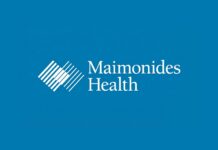The University of California’s five academic cancer centers, home to some of the world’s leading scientists and physicians, have formed a consortium to better address California’s most pressing cancer-related problems and opportunities, UC President Janet Napolitano and Dr. John Stobo, executive vice president of UC Health, announced today.
Despite steady declines in cancer rates over the past 20 years, cancer is soon expected to overtake heart disease as California’s leading cause of death. This year alone, 176,000 state residents will be diagnosed with cancer and nearly 60,000 will die from it. The estimated cost burden of cancer in California is $14 billion annually.
Each of the UC centers holds the highest designation possible from the National Institutes of Health’s National Cancer Institute, and the alliance reflects a new model for cancer research and treatment that calls for the best minds to work together, regardless of where they are, to tackle cancer’s many problems.
Among the projects the consortium will undertake are precision medicine, clinical trials, population health science, best practices in harnessing big data to improve health, and political engagement for public benefit.
“The University of California — and the people of California — are privileged to have at UC physicians and scientists who are among the very best at what they do: care for patients and conduct research that leads to discovery and new knowledge that benefits us all,” Napolitano said. “The formation of the UC Cancer Consortium will help leverage this institutional strength.”
The centers that make up the consortium are UCLA’s Jonsson Comprehensive Cancer Center, the UC Davis Comprehensive Cancer Center, the UC Irvine Chao Family Comprehensive Cancer Center, the UC San Diego Moores Cancer Center, and the UC San Francisco Helen Diller Family Comprehensive Cancer Center.
The past decade has seen unprecedented progress in cancer research and treatment. But with its advances in collecting and analyzing large data and the new ability to look deeply inside the disease’s biology, this era has brought the cancer community to a crossroads. Advances will now come only through coordinated efforts among the most skilled people and institutions.
“The UC Cancer Consortium is uniquely placed to take on California’s most difficult issues related to battling this insidious disease,” Stobo said. “Our research mission and high level of skill also mean that our centers often care for patients with rare cancers who cannot be treated in other hospitals that may lack the expertise or access to clinical trials using the latest experimental drugs.”
Each of the UC cancer centers is a hub of expertise and innovation, and all of them partner with industry to advance technology, protocols and medicines that become available to practitioners and patients around the world. Their collective expertise and capabilities will enable the consortium to rise to the challenges of the times and to address California’s most pressing cancer-related problems and opportunities. These include costs of care, variability in reimbursement, challenges in research funding, inequities in access to care, disparities in outcomes and public health issues, matching developing drugs to multiple cancer subtypes and rare tumors, and harnessing the profusion of data to improve care and safety.
“This new UC Cancer Consortium represents a forward-looking partnership among leading academic cancer centers,” said the consortium’s inaugural chair, Alan Ashworth, a fellow of the Royal Society and president of the Diller Cancer Center. “Each institution has contributed significant advances to cancer research and treatment. Together, we can better serve the people of California and make even greater contributions to the field of cancer.”
Media Contact
Peter Bracke
310-206-4430
pbracke@mednet.ucla.edu

















